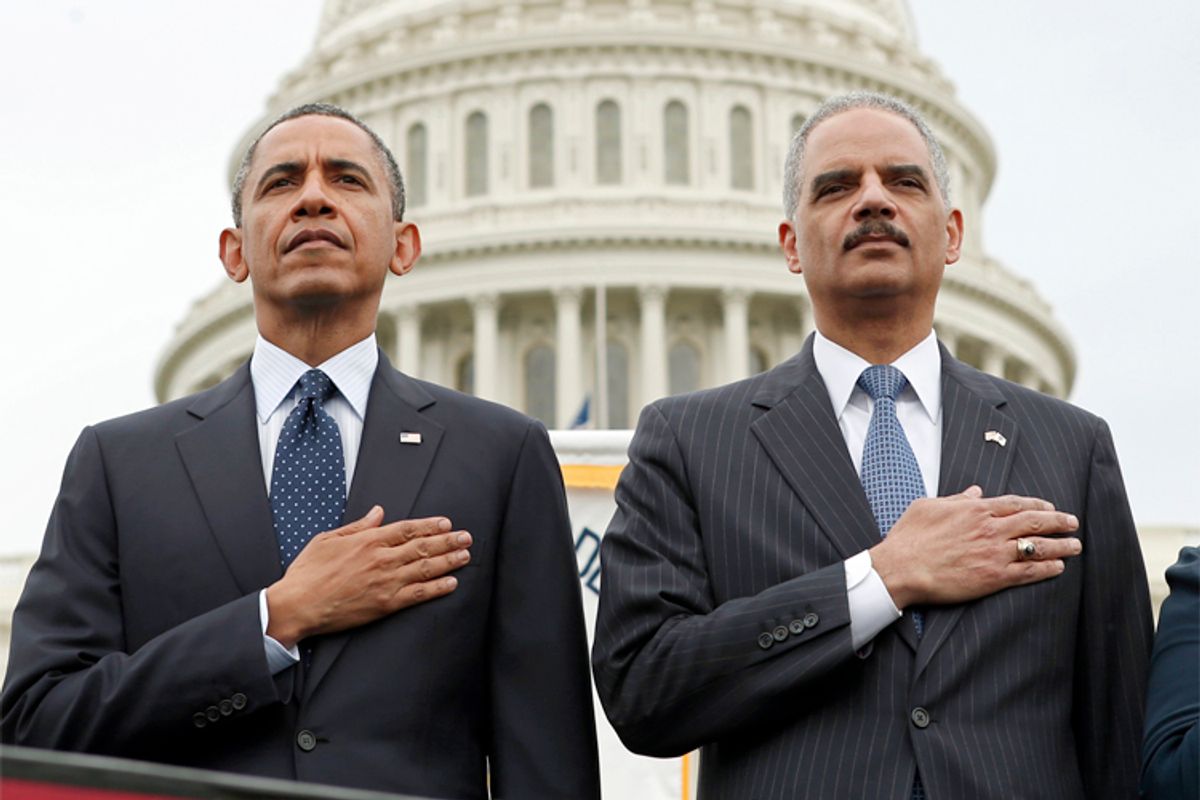Is Edward Snowden a hero or a criminal? Phrasing the debate over Snowden’s actions in this way, as ABC News’ George Stephanopoulos did earlier this week, obscures the possibility that he may well be both things at once.
Given his own description of his behavior, there is little doubt Snowden is guilty of the crimes with which the government has now charged him: theft of government property, unauthorized communication of national defense information, and willful communication of classified communications intelligence information to an unauthorized person. (As was reported this weekend, Snowden has left Hong Kong and is seeking asylum in another country via Russia.)
Writing in the Guardian, Glenn Greenwald argues that there is something perverse about charging Snowden with what, under federal law, is a violation of the Espionage Act:
In what conceivable sense are Snowden's actions "espionage"? He could have - but chose not - sold the information he had to a foreign intelligence service for vast sums of money, or covertly passed it to one of America's enemies, or worked at the direction of a foreign government. That is espionage. He did none of those things.
This is an important point: In criminal law, motives are crucial, and from what we know, it does not appear that Snowden’s motive was either to profit personally from his actions, or to aid another nation at the expense of the United States.
Nevertheless, the Espionage Act is a very broadly worded statute, and the government has the option to use it to treat the leaking of classified information as a crime, no matter what the leaker’s intentions may have been.
Nor is it likely to avail Snowden, legally speaking, to claim some sort of whistle-blowing defense: from what has been published so far, it doesn’t appear that Snowden’s leaks pertain to any illegal activity on the part of the government. (This is a perfect illustration of Michael Kinsley’s famous aphorism that “the scandal isn’t what’s illegal, it’s what’s legal.)
So Snowden, it appears, is in fact a criminal under our current laws. But that is far from the end of the story.
There are circumstances in which the individual’s sense of moral judgment permits – and indeed may even require – one to break the law. This is the very essence of civil disobedience, and, in retrospect, it’s now clear that some of the greatest heroes in our nation’s history made that precise choice.
From inside the Birmingham jail, Martin Luther King wrote these words to clergymen who criticized him for breaking the law:
One may want to ask: "How can you advocate breaking some laws and obeying others?" The answer lies in the fact that there are two types of laws: just and unjust. I would be the first to advocate obeying just laws. One has not only a legal but a moral responsibility to obey just laws. Conversely, one has a moral responsibility to disobey unjust laws. I would agree with St. Augustine that "an unjust law is no law at all.”
Now it is a dangerous thing for any man to decide for himself, as Snowden seems to have done, that “an unjust law is no law at all.” But there is something even more dangerous: for a man to never even consider that he might be forced to make this choice.



Shares